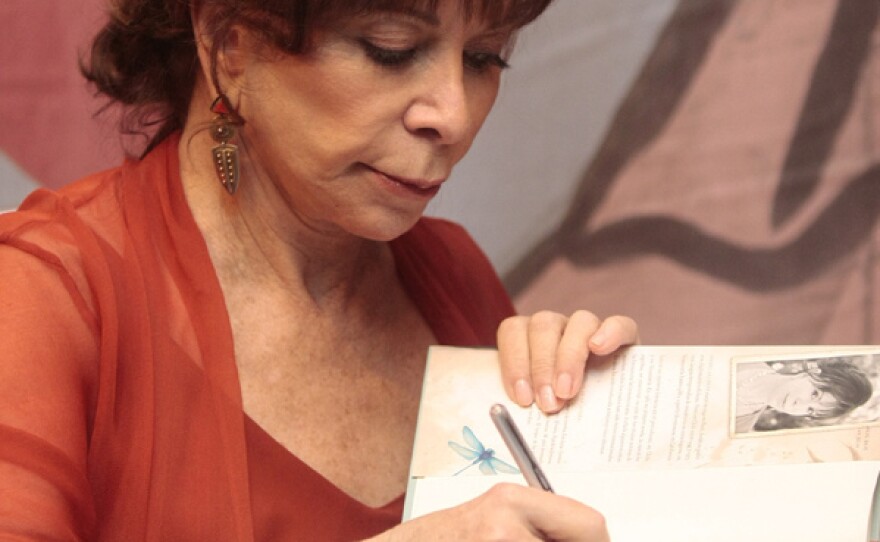It seems like the definition of an untapped market: Spanish speakers make up about 12 percent of the U.S. population, but only 4 percent of books sold in the country are in Spanish.
It's a surprising shortage that has prompted vendors and customers alike to take new steps to prove that there is a viable market for Spanish-language books. This spring, the growing industry organized the nation's first major Spanish-language book fair, called LeaLA, or Feria del Libro en Espanol de Los Angeles.

No one expected 36,000 people to show up for the event at L.A.'s downtown convention center. But while the number was higher than anyone anticipated, it was still a tiny fraction of the millions of Latinos living in L.A.
A Complicated Market
The goal of selling more Spanish-language books in the U.S. comes with plenty of complications.
For one thing, demographic numbers don't tell the whole story. Edgardo Montezuma, a Spanish language book distributor who attended the fair, says many Mexican and Central American immigrants who come to the U.S. read an average of about .05 books per year.
"If you were to invest on the number of Spanish speakers, it would be a very bad investment," Montezuma says.
Then there's the fact that Spanish speakers in the U.S. aren't a homogeneous group. Not only do Ecuadorians have different tastes from Argentines, but Spanish speakers come from a range of backgrounds — many immigrants in L.A. work on farms, without the same education as immigrants in Miami.
In light of the challenges, Montezuma says he was initially doubtful that he would sell much at the event — but in fact he was one of many vendors who nearly ran out of books to sell.
For Immigrants, An Event That 'Helps You Find Yourself Again'
Among the vendors' offerings were Spanish-language classics from Mexico, Colombia and Spain; children's picture books and translations of classics from other languages.
Fabusino Valadez, a book fair visitor who emigrated from Mexico 13 years ago, says he loves to read, but admits that it's tough to keep it up as an immigrant.
"Here, work impedes us from continuing to read in Spanish," Valadez says. "We focus more in adapting; becoming American; learning English. You lose your reading, you lose yourself. This type of event helps you find yourself again."
And it's not just immigrants looking for Spanish-language literature. Sylvia Armandarez's family has lived in the U.S. for several generations. She brought her 5- and 6-year-old daughters to the fair.
"We don't speak a lot of Spanish at home," Armandarez explains. "My grandparents and other family members somewhat do, most of our family speaks English. So we're losing our language — this is an attempt to hold on to a little bit of that."
Demonstrating A Cultural Interest
For the people at the fair, one of the biggest challenges is simply finding Spanish-language books in the first place. Theresa Ayalla, who runs a Spanish-language bookstore in L.A., says her store is one of few.
"There are other Spanish-language bookstores, they tend be on the religious side — Christian bookstores — and they're doing rather well," Ayalla says. "But I think there are only about five or six of us left that are selling books of general interest."
Marisol Schulz, LeaLA's director, says the fair's high turnout may help to prove that there are people interested in buying Spanish books.
She says book fairs are a perfect medium for demonstrating a market's potential — and cultivating that market in the process.
"We are showing that there's a market for books in Spanish, and that Latino people are interested in serious culture," Schulz says. "So this book fair is not only a book fair, it's a major event."
Copyright 2022 NPR. To see more, visit https://www.npr.org. 9(MDAzMjM2NDYzMDEyMzc1Njk5NjAxNzY3OQ001))






